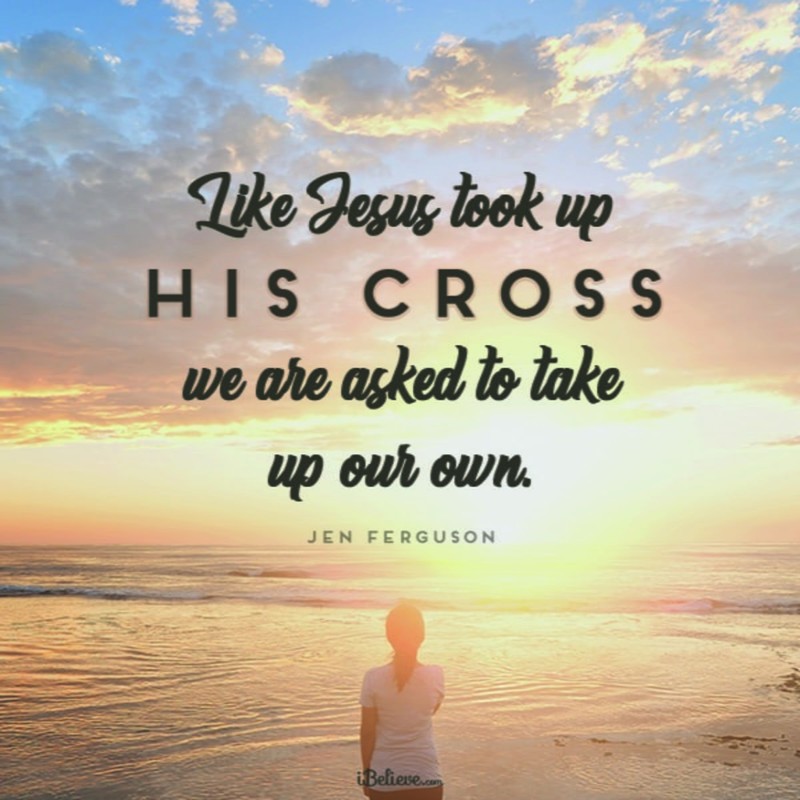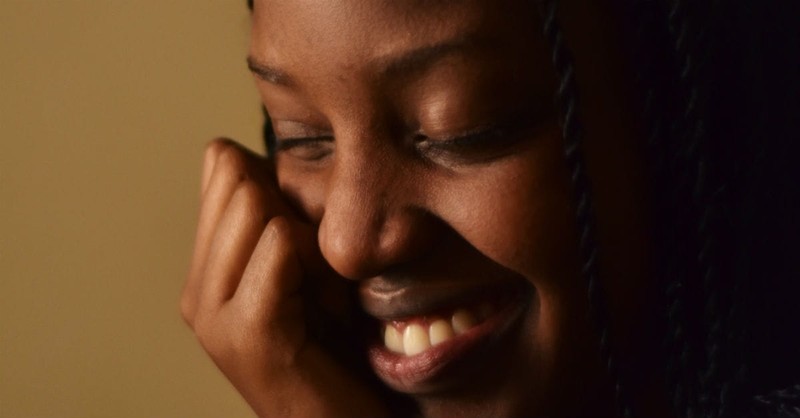
Right now, I’m sitting in a cozier-than-most waiting room. Through the past year, I’ve been in quite a few waiting rooms and hospital rooms. I’ve paced the halls, slept on cots (and one very uncomfortable chair), talked to doctors and nurses and techs about my husband and his health.
But this waiting room? It’s for me.
Just a few days ago, I went in for my well-woman exam. I turned forty in May, so the mammogram was in the plan. The lump was not.
I just had the first round—the annual smashing of the boob. Depending on what the radiologist sees, I may have to go for the ultrasound part.
I write this article without results, but that’s because the results aren’t the point. The point is this: Am I willing to deal with the fallout of praying the hard prayer?
A year ago, my mother-in-law was dying of stage four pancreatic cancer. It was of environmental causes, and she also had diabetes. I looked at my husband’s eating habits, his unhealthy emotional connection with food, and his inability to stick with an exercise plan. I feared that the painful road my mother-in-law walked could be the same for my husband.
Photo Credit: Unsplash/Til Jentzsch

"I didn’t know then that praying that prayer was incredibly courageous."
I took this fear to God, knowing that all my strategies to “help” him change his lifestyle never really stuck, and I laid it all on the line: Whatever it takes to get Craig healthy, that’s what I want You to do, God.
I didn’t know then that praying that prayer was incredibly courageous. I was naïve, thinking I was in for a semi-bumpy ride, but I never imagined one that came with a liver disease, an auto-immune disease, over fifty pounds of water weight, hospital visits, and countless medication protocols.
You may surmise that I might have grown more careful with the kinds of prayers I thought to pray, but since I’m sitting in waiting room with a lump, you may also surmise, no.
You may want to know exactly what this prayer was so that you make sure that you do not utter one syllable close to mine, but I will tell you, even when my husband’s medical condition is not solved and I am sitting here without results, that would be a mistake because praying the hard prayer is always worth it. Why?
Photo Credit: Unsplash/Jonathan Chen

1. It affirms the posture that Jesus is in charge of your life, not you.
I love being in control. I often think I know best and how to carefully orchestrate things so that my world is safe and secure. I love to know that my family is healthy and there is money in the bank to pay bills. It feels risky to have things in limbo, to have things that are broken, to not know how things will play out. But Jesus didn’t create us to play it safe. He created us to have faith that He can do immeasurably more than we could ask or think. This takes risk. The hard prayers often bring refinement, and refinement requires fire. The things we think are best are sometimes the worst. The solutions we feel might be the final piece of the puzzle may actually spell disaster. Likewise, the things we think are the worst actually turn out to be the best. We can always follow Jesus because He always wants the best gifts for us.
Photo Credit: Unsplash/Miguel Bruna

2. It affirms that you are willing to change your heart to look, feel, and beat more like His.
All that safety, security, and control may feel good, but life isn’t about feeling good when you’re a Christian. Like Jesus took up His cross, we are asked to take up our own. Yes, God desires us to experience joy and abundance, but often times to appreciate those, we also have to go through suffering. It is through our own suffering that we begin to understand the great love and compassion that Jesus has for us to endure what He endured.
Design Credit: Rachel Dawson

"By God’s grace there is indeed something redemptive and curative in the hard paths we travel."
In his book, An Unhurried Leader, Alan Fadling writes:
By God’s grace there is indeed something redemptive and curative in the hard paths we travel. I think it is the consecration of our suffering that does it. Suffering alone is just pain. Suffering in the presence of a loving and faithful God, however, can drive our roots deeper into our knowledge and love for him than we imagined ever going…And suffering has slowed me down. Hurry has a way of making me skim the surface of God’s loving presence in my life. Being slowed down by suffering gives me the opportunity to sink my roots deeper into my heavenly Father’s love.
The deeper we know God’s love for us, the more in alignment we are with Him, and the more other people will see Jesus when they see us.
Photo Credit: Unsplash/Palon Youth

3. It affirms that you care more about the lives of people around you than your very own.
I learned the hard way that praying the hard prayer for someone else means there are often repercussions in own your life. When Craig had to radically change his diet in order to overcome one of his health issues, it meant I had to radically alter my go-to dinner meals, my grocery shopping list, and the amount of time I spent in the kitchen cooking. (I hate cooking, by the way.) I was willing to sacrifice my comfort for his health. And isn’t this how Jesus lived? “Greater love has no one than this: to lay down his life for one’s friends,” (John 15:13).
Photo Credit: Pexels

"Life is rather empty when the only one you’re looking out for is yourself."
Life is rather empty when the only one you’re looking out for is yourself. Sure, you can live in your self-protective walls, but what happens when eventually you can no longer be self-sufficient? No, we don’t do for others so that one day they will do for us. But in sacrificing, in praying, in being willing to help, we build true relationships. We engage in community how God designed us to engage in community. And learning to grow in our relationships with others helps us to grow in our relationship with God.
Photo Credit: Unsplash/Vladislav Nikonov

4. It affirms that you care more about internal transformation than external circumstances.
This is a hard one to swallow when you’re in the middle of your hard story. It is hard to choose long-term character building when the short-term pain feels so acute.
When there is suffering, especially acute suffering, it's hard to accept that God really is working out everything for good for those who love Him. And yet, Jesus suffered acutely for us on the cross, Mary agonized for three days, and the world still got saved. Talk about good coming from evil! Talk about building faith, not only in Mary, but in all the disciples.
Photo Credit: Unsplash

"...many of the things God has refined out of me take longer than three days for life-lasting change."
And I hear you—many of us have been suffering for far more than three days. But, speaking personally, many of the things God has refined out of me take longer than three days for life-lasting change. In order to truly grow deeper in my faith and in my relationship with Him, there are often long spans of hard times, when I can truly wrestle out my fear and my pride.
Photo Credit: Unsplash/Craven Bing Jr.

"I prayed that God would eradicate my fearful response to the circumstances of life."
And that brings us back to the hard prayer I prayed for myself. You’ve been wondering, haven’t you? Here it is: I prayed that God would eradicate my fearful response to the circumstances of life. I have found when I’m motivated by fear, I don’t hear God well. I seize control instead of surrendering. I seek my own solutions instead of Jesus’. I want to live differently. I want to pursue and experience peace that not even the worst circumstances can influence. Because if I truly believe that with God all things are possible, I never want to walk alone.
Jen Ferguson is a wife, author, and speaker who is passionate about helping couples thrive in their marriages. She and her husband, Craig, have shared their own hard story in their book, Pure Eyes, Clean Heart: A Couple’s Journey to Freedom from Pornography and are also creators of the Marriage Matters Prayer Cards. They continue to help couples along in their journeys to freedom and intimacy at The {K}not Project. Jen is also a mama to two girls and two high-maintenance dogs, which is probably why she runs. A lot. Even in the Texas heat.
This article is part of our courage theme for the month of August on iBelieve. What is courage? Usually, we associate courage with heroic and brave deeds. But this definition fails to recognize the inner strength and level of commitment required for us to actually speak honestly and openly about who we are and about our experiences -- good and bad. We believe this kind of “ordinary courage” is what God calls us to live into every day of our lives.
Check back here throughout August for a new story of courage as our writers tackle what it means to be faithful, courageous women in a culture that values comfort and conformity.
Photo Credit: Unsplash/David Kennedy
Banner Design Credit: Rachel Dawson
Originally published Monday, 13 August 2018.










